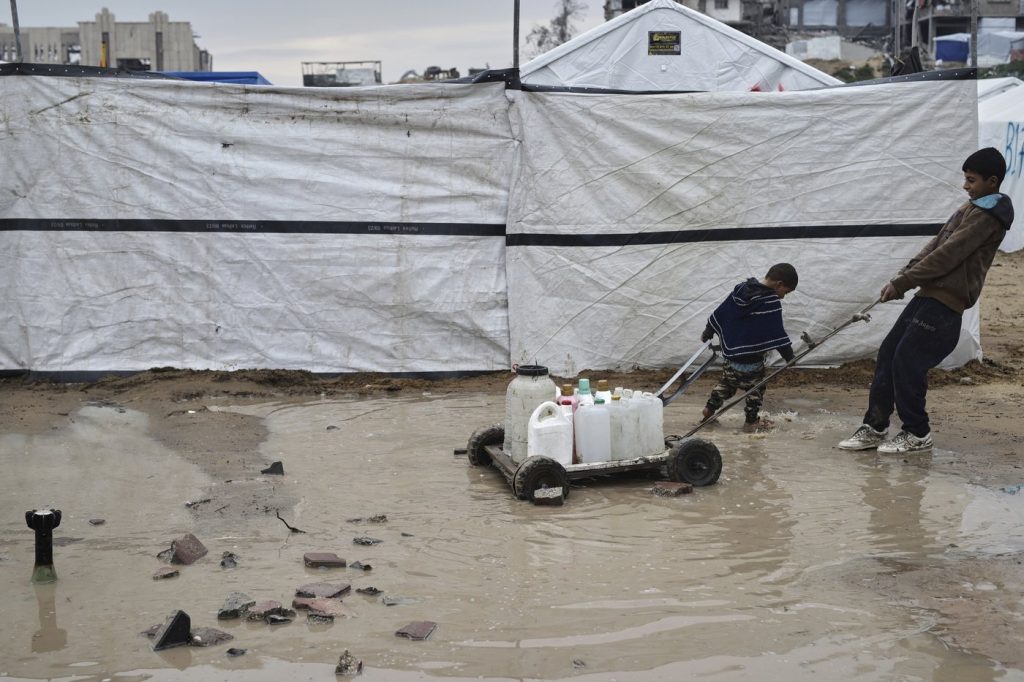JERUSALEM (AP) — On Sunday, Israel announced a significant escalation in its actions against Gaza by cutting off its electricity supply. The immediate consequences of this move are still unclear, but the lack of electricity poses a serious threat to the territory's desalination plants, which are crucial for producing drinking water in the arid region. Gaza, home to over 2 million people, has already been suffering from severe shortages of supplies since Israel previously halted all goods entering the territory.
Israel's latest measures signal a continuation of its strategy to pressure Hamas, the militant group that rules Gaza, to agree to an extension of the current ceasefire. This first phase, which ended last weekend, allowed for the release of 25 living hostages and the remains of eight others in exchange for nearly 2,000 Palestinian prisoners. However, Israel is demanding that Hamas release half of the remaining hostages before any further negotiations can take place.
In contrast, Hamas is looking to initiate discussions for the ceasefire's second phase, which would involve the release of all remaining hostages in Gaza, the withdrawal of Israeli forces, and the establishment of a lasting peace. It is believed that Hamas currently holds 24 living hostages and the remains of 35 others. The group has expressed that cutting off supplies to Gaza will also affect the hostages, and has reported that their latest round of ceasefire talks with Egyptian mediators ended without any changes to their position.
The Israeli government had previously indicated that the cessation of goods would lead to cuts in water and electricity supplies. A new letter from Israel's energy minister directed the Israel Electric Corporation to stop power sales to Gaza. The impact of the electricity cut could extend to water pumps and sanitation facilities, in addition to the already significant humanitarian crisis in the territory, where infrastructure has been severely devastated by ongoing conflict.
International criticism of Israel's actions has intensified, with the United Nations human rights office stating that denying essential supplies to civilians could constitute collective punishment. The current ceasefire had initially provided a brief respite from potentially historic levels of violence and destruction in the region, which escalated following a surprise attack by Hamas on southern Israel on October 7, 2023.
Since the start of the conflict, approximately 1,200 people, mostly civilians, have been killed in Israel due to Hamas' assault, with 251 individuals taken hostage. In retaliation, Israeli military operations in Gaza have reportedly resulted in over 48,000 Palestinian deaths, primarily affecting women and children, according to Gaza's Health Ministry. This staggering figure does not specify how many of the deceased were militants.
As aid supplies were actively flowing into Gaza before the latest cuts, prices for essential items are now skyrocketing, and shortages of food and basic necessities are becoming increasingly dire, particularly amidst the Muslim holy month of Ramadan. Residents like Fares al-Qeisi expressed that while conditions had slightly improved following the ceasefire's announcement, the situation prior had been critically severe.
Amid these developments, the White House confirmed direct U.S. talks with Hamas, with envoy Adam Boehler suggesting a possible long-term truce could be on the horizon. Boehler indicated that negotiations could potentially lead to a comprehensive agreement that addresses the release of all hostages, not just American ones. Meanwhile, Hamas continues to advocate for an independent committee to govern Gaza until elections can be held, although Israel has dismissed the Palestinian Authority's role.










